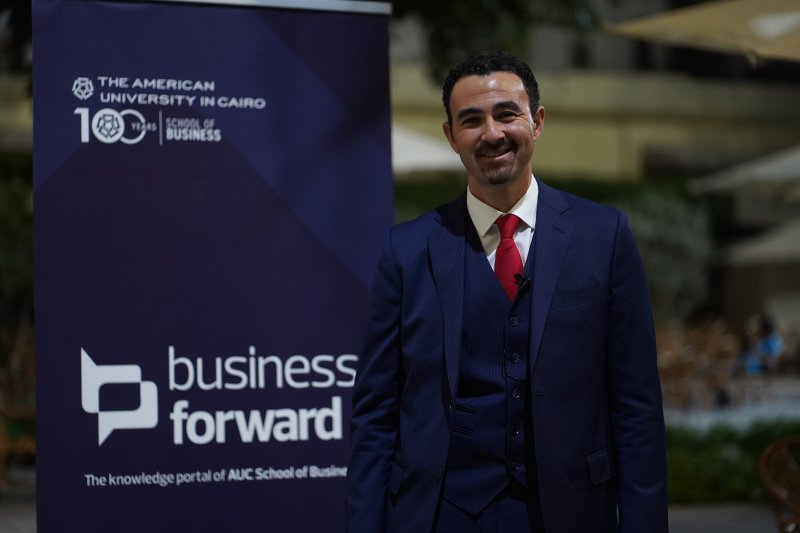On December 2 over at AUC Tahrir, the AUC School of Business hosted the 2019 anniversary of Business Forward, giving a platform to leaders in the law, government, and business community to discuss Egypt’s ongoing reforms and exploring the best way forward.
Amongst the list of exceptional speakers was Shalakany Law Firm’s senior partner Aly El Shalakany. An experienced corporate lawyer with extensive knowledge on Egypt’s legislative reform, Shalakany spotlighted efforts to fully leverage the reform program on the legislative front, while also pointing out what needs to be done better.
What happened so far?
Egypt’s journey with legislative reform isn’t merely just taking off. For the past few years, a number of new laws have been introduced in hopes to attract foreign investments and increase the ease of doing business in Egypt – some of them effective and others yet to realize their full potential.
“First came the investment law, which went into effect in 2017 with a main objective of spurring the rate of FDI, and overcome investment challenges by offering incentives and guarantees,” said Shalakany. “There was also the welcome introduction of tax incentives to encourage investment in specific sectors and geographical areas.”
What came next is the bankruptcy law, in effect since 2017. Shalakany explained that the law constitutes a “philosphical shift from an occupational regime to a restricting regime,” comparing it to chapter 11 in the US.
“The real objective here is really try to increase the ROI in a situation of financial distress, and try to decriminalize and de-stigmatize bankrupted companies,” he explained.
“Executive regulations have unfortunately not seen much change,” said Shalakany without further elaborating.
On to one law that, if fully and properly implemented, could constitute a dramatic hike in the quality of life for most Egyptians; the universal healthcare law.
“It was released in January 2018, however it has a very long implementation cycle; starting in 2018 and ending in 2032,” elaborated Shalakany. “It will be gradually implemented across governorates, and has already started in Port Said.”
How well did such reforms fare?
“The macroeconomic situation has markedly improved, and growth has accelerated; we’re the fastest growing economy within MENA and Africa,” said Shalakany. “External fiscal deficits have narrowed; international reserves have gone up, significantly; and inflation has declined.”
The one main challenge that continues to be an obstacle to the full realization of the reform effort was, according to Shalakany, the implementation of structural reforms.
“If we look at VAT, change has been very positive and fast. The new investment law, on the other hand, has had a limited effect so far,” explained Shalakany. “The universal health insurance law, which is a very good one, has lots of challenges and opportunities. But unfortunately the impact so far has been limited because it’s been implemented in one governorate.”
What’s the way forward?
“The first thing to look at is the banking law, which is due for a big update,” announced Shalakany. “The Central Bank has been working on it for quite a while and they’ve actually published some fees and explained things that will be happening in the sector moving forward.”
To mitigate the potentially dire consequences of asset bubbles within industries, Shalakany said the next step should be establishing a ‘financial stability community.’
“We’ve all seen the effects of the global financial crisis. So the entire business community needs to help the central bank monitor those risks and asset bubbles and how to deal with them.”
On the upcoming income tax law, Shalakany said authorities are focused on closing down legal loopholes that enable some to avoid taxes, and the taxation of the digital economy, specifically e-commerce. The good news, he said, that the drafts currently in circulation of the income tax law don’t indicate there will be any increase in such taxes after the law is implemented.
Last, but not least, is the data protection law, which will be a first of its kind in Egypt.
“It would be the first time Egypt would have a standalone data protection law, protecting personal data that has any access or connection in Egypt,” explained Shalakany.
“The objective here is to introduce a law that will adhere to international standards like the GDPR in the EU. And we’re going to have a new regulator that will apply the system and monitor compliance. So this is a very important law.”
Concerns to consider moving forward?
“Issuing legislation over the past few years has been happening at an unprecedented pace. It’s a real tough job to keep up with everything, I think the best laws that have been issued in the past few years have had a high degree of consultation,” said Shalakany.
“Not only within the government or parliament, it [the discussion] needs to go wider; speaking to stakeholders and independent experts – not just official experts. Also, within business and economic laws, decriminalizing sanctions for businesses is of crucial importance.”









